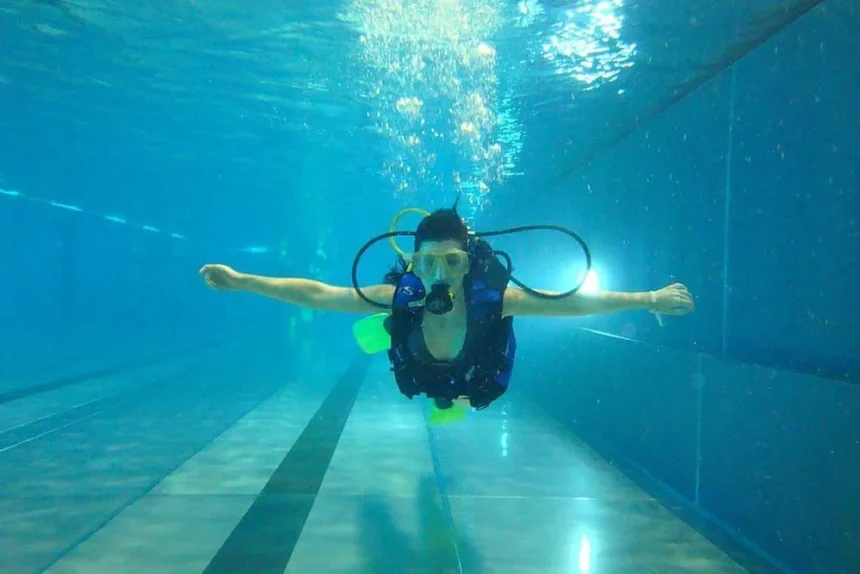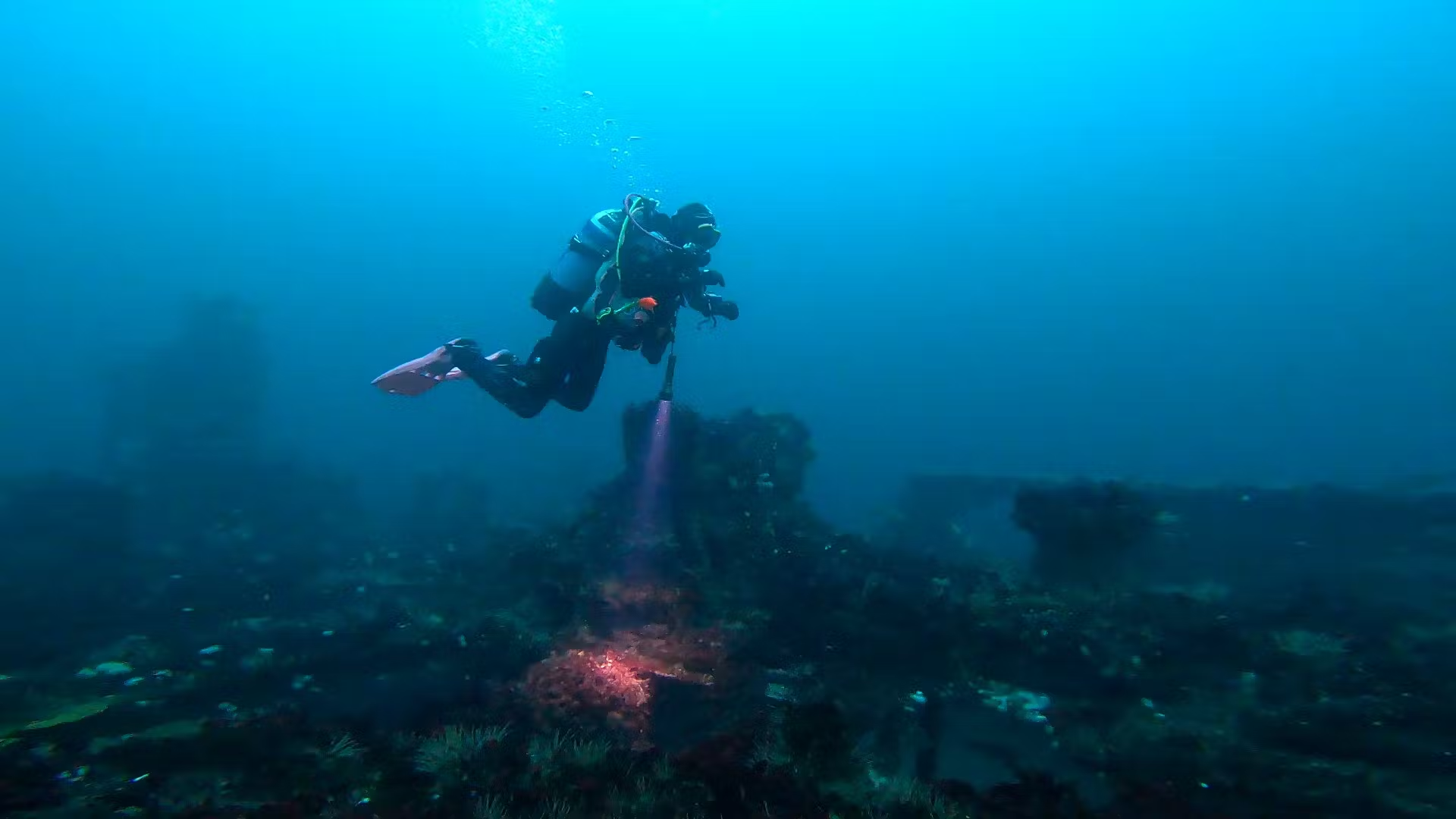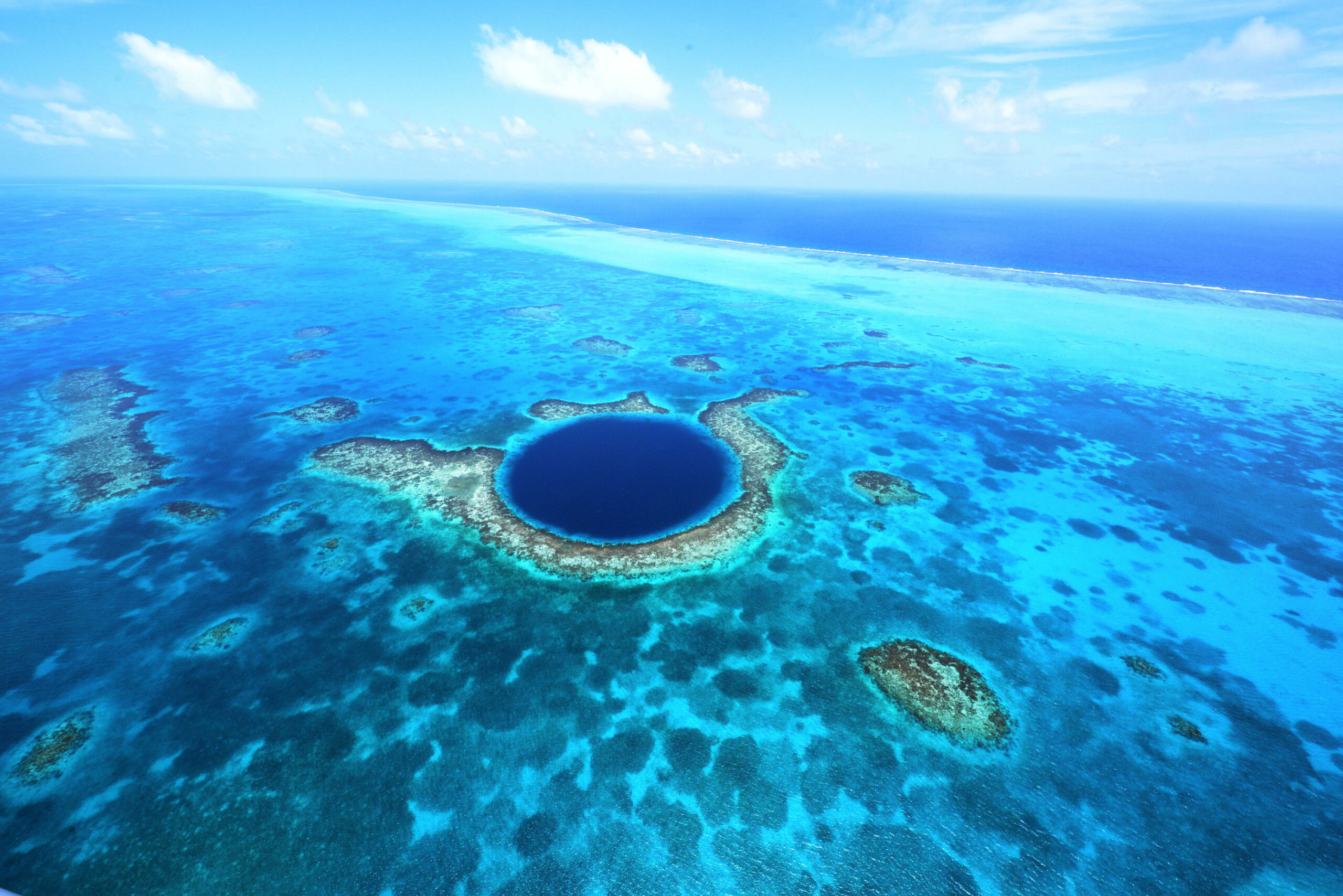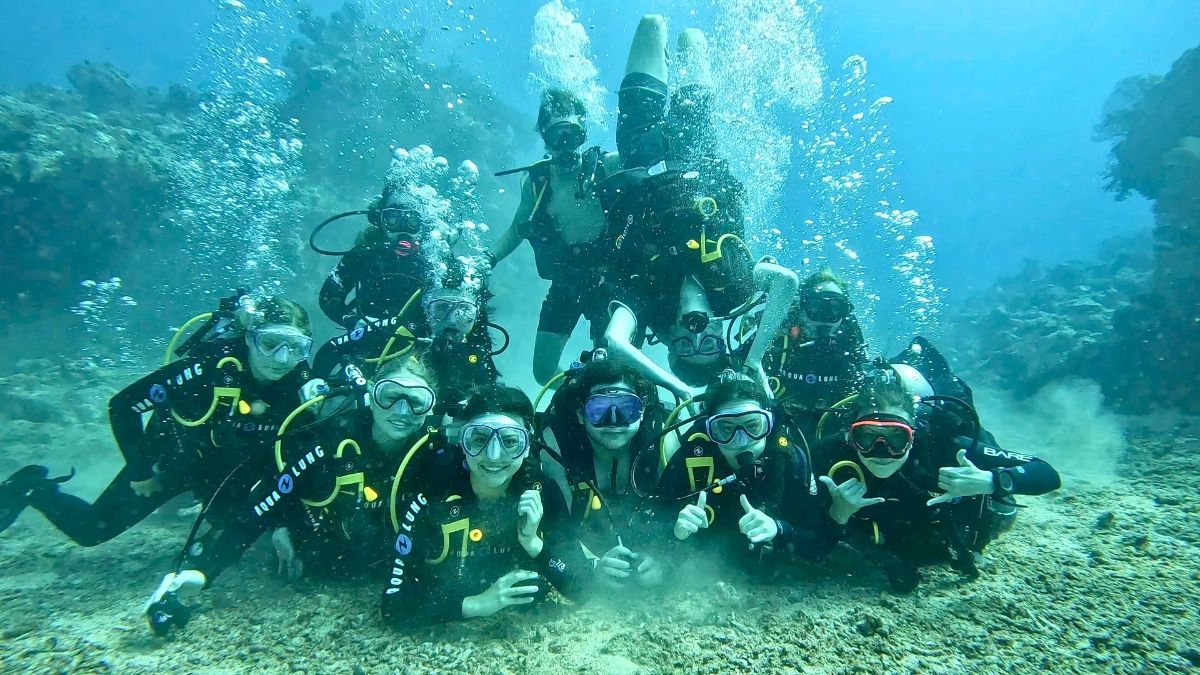Feeling scared of deep water before your first scuba dive is completely normal. Many new divers experience anxiety, fear of the unknown, or nervousness when they imagine going underwater for the first time. The good news is that these fears can be reduced with simple steps, practice, and the right mindset. This guide will help you understand your fear, prepare your mind and body, and gain the confidence you need to enjoy your first scuba diving experience safely.
- Understanding the fear of deep water
- Why scuba diving feels scary at first
- Start by learning about your scuba equipment
- Practice breathing techniques before your dive
- Start in a swimming pool or shallow water
- Go slow and do not rush your training
- Visualise a positive scuba experience
- Learn basic swimming and floating skills
- Dive with a trusted instructor
- Understand that depth does not change safety
- Use your dive buddy for support
- Shift your focus from the fear to the beauty
- Practice relaxation techniques on the day of your dive
- Celebrate small steps and progress
- Call to action
- FAQs
- How can I calm myself before my first scuba dive?
- Is it normal to fear deep water before scuba diving?
- Can I scuba dive if I am not a strong swimmer?
- Will my instructor stay close to me underwater?
- How do I trust my scuba equipment?
- How deep will I go during my first dive?
- Does fear go away after the first dive?
If you are planning your first dive and want more beginner-friendly tips, you can explore helpful guides on scoobadiveguide.com to build your underwater confidence.
Understanding the fear of deep water
Fear of deep water often comes from not being able to see the bottom, worrying about breathing underwater, or feeling like you have no control. Some people fear marine animals, while others are simply afraid of drowning. These thoughts can feel overwhelming, but they are based on imagined danger rather than real risk.
Modern scuba diving is extremely safe when done with proper training and certified instructors. Your fear does not mean you cannot dive. It only means you need the right preparation, slow exposure, and trust in your equipment and training.
Why scuba diving feels scary at first
Scuba diving is a new environment for your body and mind. You breathe through a regulator, carry gear, and stay underwater longer than you ever have. Because it is unfamiliar, your brain reacts with worry. But as you learn how each piece of equipment works and practice in shallow water, the fear slowly fades.
Most beginners find that their fear reduces dramatically after their first pool session. Once they realise they can breathe comfortably underwater, they start enjoying the experience instead of worrying.
Start by learning about your scuba equipment
Understanding your scuba gear is one of the easiest ways to reduce fear. When you know how your regulator, buoyancy control device, and tank work, you trust them more.
During your training, your instructor will explain every part of the equipment. Pay attention, ask questions, and try everything at your own pace. Knowing that the equipment is designed with multiple safety features helps build confidence even before your first dive.
If you want to read more beginner-friendly scuba guides, visit scoobadiveguide.com for simple articles on gear and safety.
Practice breathing techniques before your dive
Controlled breathing helps calm your body and mind. Most fear of deep water starts with fast breathing, which makes you feel anxious. Practice slow, steady breathing at home before your dive.
Sit comfortably, inhale slowly through your nose for four seconds, hold for two seconds, then exhale for six seconds. This helps train your body to stay relaxed underwater. Once you start your diving pool session, focus on slow breathing through the regulator. The more you practice, the calmer you will feel.
Start in a swimming pool or shallow water
Your first scuba training session always takes place in shallow water. This helps you get used to the feeling of breathing underwater without any pressure of depth. Take your time during this session. Sit, kneel, and float until you feel comfortable.
Most divers say that their fear disappears once they spend a few minutes underwater in a pool. This small step is very powerful because it shows your mind that you are safe.
Go slow and do not rush your training
You do not have to go deep immediately. Your instructor will guide you step by step. If you feel anxious, tell your instructor. A good instructor will never rush you.
You can take extra time in the pool, practice more skills, or even schedule additional sessions. Going at your own pace is one of the best ways to overcome fear.
Visualise a positive scuba experience
Visualization is a simple but effective tool. Picture yourself underwater, floating calmly, watching beautiful fish swim by. Imagine yourself breathing slowly and enjoying the experience.
Your brain responds to positive mental images. Doing this often helps train your mind to stay relaxed during the real dive.
Learn basic swimming and floating skills
You do not have to be a strong swimmer to try scuba diving, but knowing basic floating and kicking skills helps reduce fear. Spend some time in a pool practicing floating on your back, gentle kicking, and staying relaxed in water. These small skills make you feel more comfortable and improve your confidence.
Dive with a trusted instructor
Choose a certified dive centre and an instructor who understands beginner fears. When you trust your instructor, your anxiety drops quickly. They will assist you, check your equipment, and stay close during your dive so you always feel safe.
If you need help finding beginner-friendly guides or dive experiences, scoobadiveguide.com offers helpful resources to assist new divers.
Understand that depth does not change safety
Many beginners think deeper water is more dangerous. But scuba safety depends on training, not depth. You will only dive within safe beginner limits. Your instructor always monitors your depth, your air supply, and your comfort.
Once you start diving, you will realise that the experience feels peaceful and weightless, not scary.
Use your dive buddy for support
You will never dive alone. You always dive with a buddy. Your buddy and instructor stay near you throughout the dive to make sure you feel comfortable. Knowing you have someone beside you helps reduce fear of being alone underwater.
If you ever feel uneasy, signal your buddy and take a moment to breathe slowly. Support from another diver makes you feel more secure.
Shift your focus from the fear to the beauty
Instead of thinking about the deep water, focus on the beautiful underwater world. Scuba diving allows you to see colourful fish, corals, and peaceful marine life. Once you shift your attention from fear to curiosity, diving becomes easier and more enjoyable.
The more you dive, the more your confidence grows.
Practice relaxation techniques on the day of your dive
On the day of your dive, stay relaxed. Remind yourself that you have trained well and are in safe hands. Use slow breathing techniques and drink enough water. Avoid overthinking.
Before the dive, breathe slowly through your regulator in shallow water. This helps your body settle and gives you confidence before going deeper.
Celebrate small steps and progress
Every small achievement matters. Even putting on your gear, sitting underwater in the pool, or taking your first few breaths through a regulator is a big step forward. Celebrate your progress instead of focusing on fear.
With time and practice, your fear will be replaced by excitement.
Call to action
If you are preparing for your first scuba dive and want more beginner guides, gear tips, and easy underwater safety advice, visit scoobadiveguide.com. You can explore detailed articles that help you build confidence, plan your dive trip, and enjoy the underwater world with peace of mind.
FAQs
How can I calm myself before my first scuba dive?
Focus on slow breathing, visualise a positive experience, and remind yourself that training is safe. Spending extra time in shallow water also helps reduce fear.
Is it normal to fear deep water before scuba diving?
Yes, most first-time divers feel nervous. Fear is natural, but it decreases once you start training in shallow water and learn how equipment works.
Can I scuba dive if I am not a strong swimmer?
Yes, you can. Basic swimming and floating skills help, but scuba diving relies more on breathing and buoyancy than fast swimming.
Will my instructor stay close to me underwater?
Yes, your instructor stays very close, especially during your first dive. You will never be left alone underwater.
How do I trust my scuba equipment?
Learn how each gear piece works during your briefing. Modern scuba equipment has multiple safety systems, which makes diving very safe.
How deep will I go during my first dive?
Most beginner dives are between 6 to 12 meters, which is very safe and controlled. Your instructor decides the depth depending on your comfort.
Does fear go away after the first dive?
For most people, yes. Once you start breathing underwater and see how calm diving feels, your fear reduces quickly.




